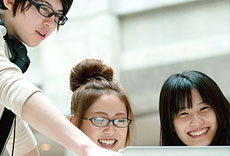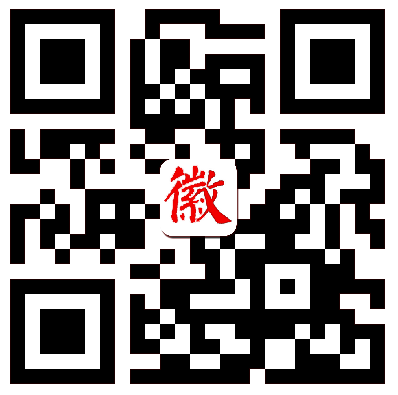What's going on in my university?
What to bring and what not to bring to Universities in Anhui Province

For Freshman:
What to bring and what not to bring to Universities in Anhui Province
Are you still moving around your room and thinking which things to bring and which not to bring before you departure to Universities in Anhui Province?
Life in Chinese universities may differ from that in your country. Take this “what to and what not to bring” list with you and then go on your preparation. Try this list; you may enjoy a time-saving and less trouble packing preparation.
Principle 1: Don’t try to plan for the whole semester.
Remember, things wouldn’t go that smoothly as you may have planned, make sure you have prepared the things you may need in the first month and that is careful enough.
Principle 2: Everything you packs, first ask yourself why you may take it.
Try to use a reasonable explain to convince yourself. Never bring "just in case" things
Principle 3: Stop the thought “things I want may never appear in China”
China enjoys a large scale of import and export, every semester; all supermarkets in campus will equip them with sufficient and all kinds of necessities meeting all demands of students from all over the world. For some particular needs, you may search on online shopping websites; goods will reach you within 3-4days.
What to Buy in Universities in Anhui Province or bring by you yourself:
(All the following things can be purchased in different stores in Universities in Anhui Province)
Sheets and Quilt/Comforter
Mattress Cover
Extension Cord
Computer and related accessories
Flashlight with extra batteries
“Husband” pillow
Fan
Wastebasket
Hangers
Toothbrush, Toothpaste, Shampoo, Soap, and other Toiletries
A cup or mug, plate, bowl, fork, knife, and spoon
Sewing kit
Small items for clean-up
Laptop lock
Umbrella
Power strip with surge protection
Highlighters, Pens, Pencils, Paper, Notebooks, Loose Notebook Paper, Binders, Post-It Notes, Paper Clips, Scissors, Tape, Stapler, Binder Clips
“What not to bring to Universities in Anhui Province” list
(In Universities in Anhui Province ,domestic and International students are not allowed to bring any of the following things to campus )
Fridge and microwave
Hot plate
Routers
Expensive equipment
Electric blanket
Speakers those are larger than 12 inches by 20 inches
Other food preparation appliances
Rice cookers
Space heaters
Hot pots
Grills
Blenders
Coffee makers (K-Cup Machines or other single cup machines included)
Dangerous substances
Pets
Mace and pepper spray
Candles
Incense
Halogen lamps
Fake IDs
Bongs, water pipes, hookah, shisha pipes, hubble-bubbles, or any object filled with water through which tobacco smoke, aromatic smoke or smoke from other substances many be drawn

USTC Grad Wins Guggenheim Fellowships
Huang Jiaxing, an alumnus of the Anhui-based University of Science and Technology of China (USTC) won the 2014 Guggenheim Fellowships, American grants given annually for creative work in the arts, or research in any branch of knowledge.
The sole winner in the field of Chemistry graduated from the School of Chemical Physics of the university in 2000. Four years later, he received his doctor's degree in the University of California, Los Angeles (UCLA), winning IUPAC Prizes for Young Chemists and ACS Prizes for Outstanding Postgraduate of Polymer Chemistry both because of his excellent thesis.
Founded in 1925, the Guggenheim Memorial Foundation awarded this year's fellowships to 178 scholars, artists and scientists who worked in the United States.
Manhattan Project scientist draws large crowds at universities
Wherever he goes in China, Roy Jay Glauber always attracts enormous attention among science students.
During a recent string of lectures at several Chinese universities — the latest one on April 18 at the University of Science and Technology of China — young students most frequently asked him about his expertise in quantum optics, which won him a share of the 2005 Nobel Prize in physics.
"Students don't raise many questions in America or in China during large lectures. The lecturers just sound off the lecture and the students ask no questions," said Glauber a day before the April 18 lecture.
To his surprise, nearly 500 students crowded into the 250-seat lecture hall at the university on Friday morning. The lecture lasted for more than two hours and he was bombarded with question after question.
Many of the young students were interested in the 89-year-old scientist's participation in the Manhattan Project during the World War II.
"I am at an age where most of the people who were in the project were older than I am are now gone. If anyone wants to hear this story, I can tell him," said the Harvard professor, who was recruited into the project in 1943 at the age of 18.
His work in the project involved calculating the critical mass for the atomic bomb.
Never too late to learn, says Grandpa Smart

Wu Tianxiong, 91, used to work at a forklift factory in Hefei before retirement. Born in Hefei in 1923 but grew up in Chongqing during the Sino-Japanese War, he wasn't able to finish school when he was young.
"Classes were often cut off by bombings and we had to hide in caves and didn't learn much from school," he said. After he returned to Hefei and became a factory worker, the want of knowledge made him a frequent visitor to library.
"I was in poor health then so I was especially interested in medical books and also made acquaintance of a professor with the University of Science and Technology of China (USTC)."

Wu retired from the factory at 60, and got a part-time job at USTC. "I did some cleaning and raised rabbits for the laboratory. When I was not working, I went to classes of the Biology Department and the young students were very nice to me, they were very patient and would explain things to me over and over again."
At 80, Wu became a junior high school student at Hefei No. 28 Middle School, which his son used to attend. "I wanted to learn English because I wanted to read more biological works," he said.

"The kids were very supportive. Normally it's the grandpa taking the grandson to school, but my grandson took me to school on the first day," Wu said proudly. His grandson, a graduate student, loves to discuss questions with him because "grandpa is so smart!"
After graduating from high school in 2005, "Grandpa Smart" studied at Anhui Agricultural University and then enrolled in an open course on Chinese culture at USTC in 2012.
"I want to set an example; I want to send a message to everyone that it's never too late to learn," Wu said.
3 USTC Grads Win Sloan Research Fellowships
Three Chinese scientists who graduated from the special class for gifted youngsters of the University of Science and Technology of China (USTC) won this year’s Sloan Research Fellowships.
The annual fellowships are awarded by the Alfred P. Sloan Foundation to "provide support and recognition to early-career scientists and scholars". According to a list released on Feb 18, 126 young faculty from around the world were granted the awards. Among them were three Anhui-based USTC alumni: Lu Shan, Yin Jun and Sun Song.
Lu, who was enrolled into the USTC upon graduating from Hefei No.1 High School in 1998 and received a doctor's degree from University of Illinois at Urbana- Champaign in 2008, is working for University of Wisconsin as an associate professor of computer science. His colleague Yin, a doctor from Princeton University, began his USTC study in 1998 too. Sun, an associate professor of maths at State University of New York, entered the USTC talent youth class in 2002.
In addition to the three USTC graduates, the list included two graduating from the Peking University and three from the Tsinghua University. Each winner will receive $50,000.
As of 2010, 38 Sloan winners were later awarded the Nobel Prize.



 View on mobile
View on mobile